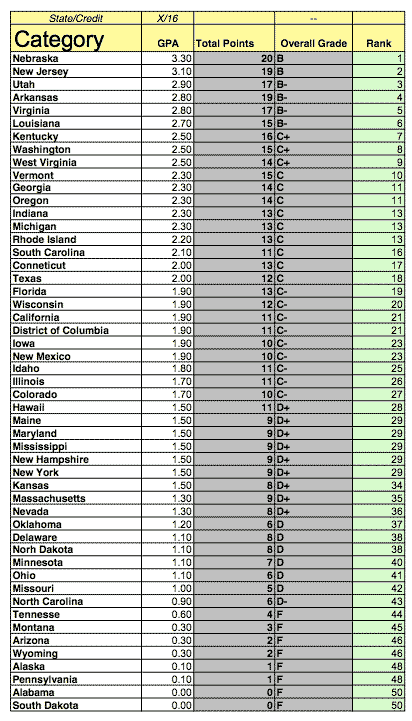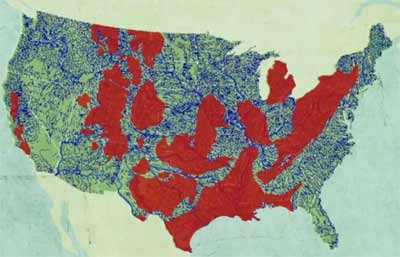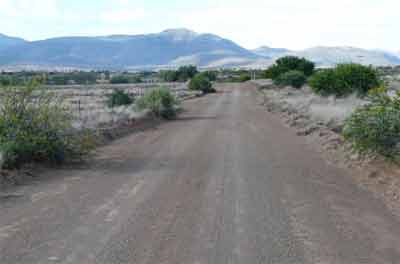Biblio
Minnesota based Blog by Shelly Thomas. Lively, entertaining, with well organized links, videos, photos. Covers UK, Canadian, international and U.S. issues. Updated regularly since April 2008.
Futurism Now is about the energy, challenges, and green jobs of the future. There are big changes coming and Futurism Now attempts to find the news and information people will need to adapt to their changing lifestyles.
See: Take the Tar Sands Pledge of Resistance
“We are in a crisis situation. In order to bring global CO2 back to the safe zone, we need a global shift now,” writes Beyond Talk. “These and other tar sands operations amount to the single-most destructive and unsustainable project on earth. (See this brief H2oil segment for an excellent introduction.)”
See: H2Oil: An Explanation of the Tar Sands in Alberta
Example Feed from 10/3/2010:
- Worst Climate Change Video Ever Made
- Activists Vow to End Mountaintop Removal
- The End of the World As We Know It
- More Downsides to Natural Gas
- Fighting Big Coal With Some Success
- UN Urges Governments to Build a Climate Change Foundation
- H2Oil: An Explanation of the Tar Sands in Alberta
- Recent Climate and Politics News
- Eco Study and Inspiration
- Pacific Walrus Threatened by Global Warming
Update on Event:
...More than 125 activists gathered from all over New York. We heard many moving speakers, including, but not limited to: Sandra Steingraber, Bob Boyle, Wes Gillingham, Legislative Representatives Barbara Lifton, Donna Lupardo, Liz Krueger, Brian Kavanagh, Danny O'Donnell, Michelle Schimel, Deborah Glick, Aileen Gunther and Tom Abinati as well as Catherine Hughes and Gene Stilp, an emissary from Pennsylvania's beleaguered gas fields, among notable others.
After the Rally, the crowd snaked from the "Well" in the Legislative Office Building all the way to the Capitol next to the Hall of Governors where Governor Cuomo's office is located. As we ascended the staircase, our chant of "NO FRACKING WAY" began to reverberate off the stone walls.
By prior agreement with highly accommodating New York State Troopers, the crowd gathered in the beautiful and historic War Room. The high-volume chant went on and on and on for nearly an hour, maybe longer. The floor in the War Room was shaking. People, including at least one minister, were dancing and banging on anything that could make noise. It was totally unbelievable. Albany was buzzing today at the performance of the "leather lung choir!!!" Rock on.
Check out "War Room protest: ‘No fracking way’" a video posted by the Albany Times Union. It will knock you on your butt.
See also: Nancy Hickling. "Local Protesters Travel To Albany To Rally Against Hydrofracking." WBNG News. 2011-03-24.
See also: Erin Connolly. "Rally to expand hydrofracking impact study." TWEAN news channel of Albany: Capital Region YNN. 2011-03-25.
...Commissioner Martens acknowledged that we had presented new data that had not been incorporated into the woefully deficient originally draft SGEIS or the Executive Order proceeding. He was entirely gracious and said he was still in the process of being briefed about the many aspects of revising the Draft SGEIS per Executive Order No. 41. He said no decision would be made in our meeting about allowing public comment regarding how DEC should go about revising the Draft SGEIS. He offered to meet again with the group.
Original Report. 2011-03-22
We are Full Steam Ahead for a Noon Rally this Thursday, March 24, 2011 at the New York State Capitol (West Capitol Park, Swan Street Steps) requesting Governor Andrew M. Cuomo to expand the scope of the Marcellus Shale draft Supplemental Generic Environmental Impact Statement (SGEIS).
Update
Neither rain nor snow nor sleet will keep us from our momentous Rally tomorrow in Albany to request Governor Cuomo to expand the scope of the Marcellus Shale draft SGEIS.
Since inclement weather is predicted, we are moving our Rally indoors. Please gather at 12:00 Noon in the "Well" of the Legislative Office Building. See map below. Just walk into the LOB from the Concourse of the Empire State Plaza. The Well is just past the elevators. You can't miss it.
This large cavernous space will showcase our event to Legislators, staff and lobbyists. It is ideal for our purposes. Thank you, Assemblywoman Lifton, for all your assistance on our behalf.
In addition to the highly notable individuals and groups I mentioned yesterday, we will be joined by Shaleshock, Committee to Protect the Finger Lakes, Cortland Drilling Awareness Coalition, Tompkins County Legislator Pam Mackesey and Catherine Hughes of New York City Community Board One, which passed a major resolution last evening in support of expanding the scope of the draft SGEIS.
I am pleased to let you know we will be joined by State Legislators, physicians concerned about gas drilling threats to public health, NYPIRG, NYRAD, Catskill Mountainkeeper, Sierra Club: Atlantic Chapter, acclaimed ecologist, Sandra Steingraber, and legendary environmental activist and author, Robert H. Boyle, who revealed GE's contaminated the Hudson River with PCBs (polychlorinated biphenyls).
Most importantly, grassroots activists and groups will be gathering at the Capitol from all over New York...
Thank you so much for your strong support.
See: New York State Assembly Passes Moratorium on Hydrofracking | Governor Vetoes Bill.
See: Leaked EPA Documents Expose Decades-Old Effort to Hide Dangers of Natural Gas Extraction.
OpenSecrets.org Launches 'Fueling Washington' Series Exploring Oil and Gas Industry's Political Influence
The Center for Responsive Politics today launches "Fueling Washington," a week-long series of reports exploring the oil and gas industry's evermore intimate relationship with the federal government and the people elected to make the nation's laws.
With a president promising comprehensive climate change legislation and a massive oil spill in the Gulf of Mexico, the fossil fuels industry has dominated political discourse this year in ways it never before has.
And such debate comes at a time when the most interested of parties -- environmentalists, alternative energy producers, the oil and gas industry itself -- are pouring record amounts of money into national politics in an attempt to bend rules, regulations and politicians their way.
Using the tools of our "Fueling Washington" series, you can investigate the tide of influential cash from these deep-pocketed -- and sometimes not so deep-pocketed -- special interest groups. Below, we specifically highlight contributions and lobbying of three special interests with significant stakes in Congress' post-oil spill debates about climate change, greenhouse gas emissions, energy policy and jobs.
Celebrating our 25th anniversary in 2008, the Center for Responsive Politics is the nation's premier research group tracking money in U.S. politics and its effect on elections and public policy.
Nonpartisan, independent and nonprofit, the organization aims to create a more educated voter, an involved citizenry and a more transparent and responsive government.
Read the results.
Here's why they did the survey.
There are probably no more important reforms to government than the ones that came with the passing of the Federal Freedom of Information ("FOI") Act. The law recognized in no uncertain terms that if government is to be of the people, by the people and for the people, the decisions and actions of the government must be open for review by the people.
The states, for the most part, followed the federal government in adopting open records laws.
Unfortunately, state FOI laws have proven to be almost uniformly weak and easy to undermine. The weakness and haphazard construction of the state laws has resulted in an information gap that significantly effects the citizenry's ability to examine even the most fundamental actions of government.
| BGA survey of FOI laws |
In the course of numerous investigations, Better Government Association investigators have been refused in our requests to review state contracts and performance measures, denied everything from documentation of ambulance response times to the documents reviewed when making budgeting decisions, and ignored by officials in nearly every major office at one time or another. Our experience told us that the FOI laws simply do not work very well in Illinois.
As a result of our hands-on experience with Illinois' lack of responsiveness, the BGA decided to find out where we stood in relationship to other states. We found that no one had completed any sort of national analysis of FOI laws, and that Illinois' relative strengths and weaknesses could not be measured without creating a new instrument to study the problem and without an analysis of each state's statutory provisions for FOI.
I was looking for the original article and ran this search on Google Scholar.
Analysis conducted by the Better Government Association
Staff: Terrance A. Norton, James M. Newcomb & Jay E. Stewart
Interns: Erika Washington and David Hall
Alabama, Alaska, Arizona, Pennyslvania, Montana, South Dakota, Tennessee, and Wyoming all got a bit fat F.
It will be interesting to see how the environmentally sensitive French react to the widespread use of the controversial hydraulic drilling technology known as “fracking” on their home turf.
Toreador Resources, a Texas oil company, has been awarded drilling rights to 750,000 acres of the Paris Basin, its licenses stretching for hundreds of kilometers from St Dizier, on the edge of the Champagne region, to Montargis, just south of the royal palace of Fontainebleau according to an article in The Australian.
Craig Mackenzie, chief executive of the Dallas based Toreador Resources is reported as saying the company wants to start drilling three pilot wells early in 2010, at a cost of US$30million, and to be producing oil from them by the end of the year.
The Collaborative on Health and the Environment (CHE) is an international partnership committed to strengthening the scientific and public dialogue on the impact of environmental factors on human health...
Underlying all of CHE's activities is a commitment to strong, uncompromised science. CHE Partners share the conviction that under conditions of scientific uncertainty, when evidence of the potential for harm to human health and the environment is scientifically compelling, precautionary measures that emphasize exposure prevention should be undertaken.
After decades of declining US natural-gas production, a new and powerful drilling technique that fractures rock with high-pressure fluid is opening up vast shale-gas deposits in Texas, Colorado and now many parts of the Northeast.
Hydraulic fracturing or "fracking" injects tons of toxic chemicals into the ground in order to break up shale beds rich in natural gas. Researchers, health and environment experts, and community groups have expressed strong concerns about these chemicals contributing significantly to air and water pollution.
The shale gas reserves, however, are seen by a number of companies, states and landowners as an enticing economic opportunity that could reap billions while lowering residential heating bills. The Environmental Protection Agency began public hearings last March to investigate the issue, and a number of citizen protests have recently been held in regions where fracking is already being undertaken or proposed.
This CHE Partner call featured four leading researchers in different fields of expertise to discuss the potential human and environmental health implications of fracking.
Featured speakers included:
- Sandra Steingraber, PhD, author of Living Downstream
- Theo Colborn, PhD, President, The Endocrine Disruption Exchange (TEDX)
- Tony Ingraffea, PhD, PE, Cornell University
- Weston Wilson, Retired EPA Region 8.
See: Poisoned profits : the toxic assault on our children
See: The Case for a Truth and Reconciliation Commission on Toxic Hazards
Sharon Wilson, Texas OGAP Organizer was flown to EPA headquarters in North Carolina to present four case studies of health impacts caused by natural gas extraction in the Barnett Shale. She met with the top rule makers in the Office of Air Quality Planning and Standards who are working on new rules for the oil and gas industry.
See: Barnett Shale Health Impacts - Case Studies
She brings our attention to the disruptive health impacts of mountain-top removal for frac sand in Chippewa, Wisconsin. Read her post on Bluedaze, Mountain Top Removal for Hydraulic Fracturing Sand.
“Do you know what fracking the Karoo is like?” demanded Esme Senekal of Somerset East. The people from Royal Dutch Shell and their consultants didn’t reply, their faces impassive.
“It’s like you coming and drilling holes in our mother, and then leaving us to look after her and take her to hospital. Leave the Karoo alone!
“This is the last piece of holy nature in this country. No money is worth this. You can’t replace pristine nature with money.”
The surrounding sunburnt Karoo farmers, not a group usually given to high emotion, loudly applauded her.
The public meeting, organised by Shell’s consultants, Golder Associates (slogan: “Engineering Earth’s development, protecting Earth’s integrity”), was held at the Somerset East Town Hall, and started with a prayer to protect God’s creation, nature.
Most of the attendees bowing their heads were farmers who face the possibility of losing everything if, heaven forbid, shale gas is found under their farms – or for that matter, anywhere in the Karoo.
See: Aragom Eloff. Ivo Vegter vs. the Fracking Fringe. 2011-04-18.
See: Donald Paul. Drill Baby Drill. 2011-04-18.
See: Lewis Pugh. Frack Off, Shell!. 2011-04-05
See: Robert Brand. South Africa Endorses Plans For Karoo Gas-Drill Freeze, Ending Shell Hopes - Bloomberg. 2011-04-21.
UB geologist Tracy Bank and colleagues found that uranium and hydrocarbons in Marcellus shale are not just physically, but also chemically, bound.
Scientific and political disputes over drilling Marcellus shale for natural gas have focused primarily on the environmental effects of pumping millions of gallons of water and chemicals deep underground to blast through rocks to release the natural gas.
But University at Buffalo researchers have now found that that process -- called hydraulic fracturing or "fracking"-- also causes uranium that is naturally trapped inside Marcellus shale to be released, raising additional environmental concerns.
The research will be presented at the annual meeting of the Geological Society of America in Denver on Nov. 2.
See: Casey Junkins. November 20, 2010. The Intelligencer Wheeling News-Register. "Profs: Wells Pose Threat: Fracking lets loose uranium, other hazards".
Dan Bain, assistant professor of geology at Pitt, and Radisav Vidic, professor of environmental engineering at Pitt, expressed concern about drilling for gas in areas throughout West Virginia and Pennsylvania because of the region's great history of coal production.
"Pennsylvania is filled with abandoned coal mines. I don't want to see this happen with gas drilling," Bain said.
An AB Resources well site about 6 miles outside Moundsville's city limits was home to a June 7 explosion, due to workers breaching a pocket of methane in an old coal mine. After injuring several workers, the charge ignited a large fireball that burned for several days.
Agriculture officials have quarantined 28 beef cattle on a Pennsylvania farm after wastewater from a nearby gas well leaked into a field and came in contact with the animals.
The state Department of Agriculture said the action was its first livestock quarantine related to pollution from natural gas drilling. Although the quarantine was ordered in May, it was announced Thursday.
Carol Johnson, who along with her husband owns the farm in north-central Pennsylvania, said she noticed in early May that fluids pooling in her pasture had killed the grass. She immediately notified the well owner, East Resources Inc.
"You could smell it. The grass was dying," she said. "Something was leaking besides ground water."
The Johnsons' farm sits atop the Marcellus Shale, a layer of rock that lies under swaths of West Virginia, Pennsylvania, New York and Ohio. As ProPublica has reported, reports have proliferated of groundwater pollution, spills and other impacts of hydraulic fracturing, a drilling technique that injects massive amounts of water, sand and chemicals underground to break up the formations that hold the gas.
Independent vibrant, Canadian online magazine based in British Columbia.
Earlier this year at Two Island Lake north of Fort Nelson, two corporations, Encana and Apache, blasted an estimated 5.6 million barrels worth of water along with 111 million pounds of sand and unknown chemicals to fracture apart dense formations of shale over a 100 day period, or what Parfitt calls "the world's largest natural gas extraction effort of its kind."
...Many experts argue that shale gas could retire coal-fired plants or slow down the deployment of wind and solar projects altogether. Others contend that shale formations deplete too quickly to offer secure supplies for the future. At the same time, the "shale gale" has also created abiding controversies about water use, groundwater contamination and the regulation of the industry from Wyoming to Quebec.
Fracture Lines, commissioned by the Program on Water Issues at University of Toronto's Munk Centre, not only sheds light on the scale of development from British Columbia to New Brunswick but highlights industry's largely unregulated water use.
"In the absence of public reporting on fracking chemicals, industry water withdrawals and full mapping of the nation's aquifers, rapid shale gas development could potentially threaten important water resources if not fracture the country's water security," concludes Parfitt. (Parfitt, 2010)
Parfitt, B. Fracture Lines: Will Canada’s Water be Protected in the Rush to Develop Shale Gas? Program on Water Issues Munk School of Global Affairs at the University of Toronto, September 15, 2010.
Ontario has a new blog:
Stop Fracking Ontario is a web project to inform and promote activism against fracking in Ontario, and in the surrounding region, and elsewhere.
This project is an all-volunteer non-partisan effort that is not tied to any one organization. We will need a broad coalition of citizens to apply ongoing pressure which could stop the fracking industry.
We also need to support a range of positive alternatives, so we can phase out natural gas.
See: Nelson, Joyce. “Ugly Reality of Fracking.” Greenmuze, April 19, 2011.
Gas drilling companies such as Halliburton say the gas drilling technique known as hydraulic fracturing, or fracking, is safe, but opponents contend it pollutes groundwater with dangerous substances.
Now, new evidence has emerged possibly linking natural gas drilling to groundwater contamination. ProPublica journalist Abrahm Lustgarten reports federal officials in Wyoming have found that at least three water wells contain chemicals used in hydraulic fracturing.
Bob and Lisa were told by their doctor to move out of their home withing 48 hours because it was too dangerous for them to stay after they were diagnosed with drilling chemicals in their blood and organs.
Videos and posting by Bluedaze Sharon Wilson.
Brandon Evans. 9/27/2010. Fight for Survival. Wise County Messenger. Online Edition.
It doesn't have to be this way. There are affordable emission controls that industry could use to prevent 90% of the emissions. These are some of the best practices least destructive practices described in DRILL RIGHT TEXAS: Best oil & gas development practices for Texas. Industry refuses to use control technology unless it is mandated.
Before you go all weird and start attacking Texas, have a look at this map and know that they are finding more shale areas everyday, everywhere, all across the globe. Shale gas is the biggest scam ever played on the human race.
Keep drilling toxics out of our drinking water.
Tell your Senators and Representatives to support the FRAC Act.
A moratorium on hydraulic fracturing has been under effect in South Africa since April, 2011.
On Friday 25 March, environmental activist Lewis Pugh delivered a passionate call to action at a public lecture in Cape Town. He implored South Africans to stand up for our rights – particularly the right to water, and the right to a healthy environment – and take on corporate bullies like Shell. If you care about the Karoo, if you care about our country, keep reading...
Ladies and gentlemen, that is what is at stake here today: our children's future. And that of our children's children.
There may be gas beneath our ground in the Karoo. But are we prepared to destroy our environment for five to ten years worth of fossil fuel and further damage our climate? Yes, people will be employed – but for a short while. And when the drilling is over, and Shell have packed their bags and disappeared, then what? Who will be there to clean up? And what jobs will our children be able to eke out?
Now Shell will tell you that their intentions are honourable. That fracking in the Karoo will not damage our environment. That they will not contaminate our precious water. That they will bring jobs to South Africa. That gas is clean and green. And that they will help secure our energy supplies. When I hear this, I have one burning question. Why should we trust them? Africa is to Shell what the Gulf of Mexico is to BP.
Shell, you have a shocking record here in Africa. Just look at your operations in Nigeria. You have spilt more than 9 million barrels of crude oil into the Niger Delta. That's twice the amount of oil that BP spilt into the Gulf of Mexico. You were found guilty of bribing Nigerian officials, and to make the case go away in America, you paid an admission of guilt fine of $48 million. And to top it all, you stand accused of being complicit in the execution of Nigeria's leading environmental campaigner, Ken Saro-Wira, and eight other activists. If you were innocent, why did you pay $15.5 million to the widows and children to settle the case out of court?
Shell, the path you want us to take us down is not sustainable. I have visited the Arctic for seven summers in a row. I have seen the tundra thawing. I have seen the retreating glaciers. I have seen the melting sea ice. And I have seen the impact of global warming from the Himalayas all the way down to the low-lying Maldive Islands. Wherever I go, I see it.
Now is the time for change. We cannot drill our way out of the energy crisis. The era of fossil fuels is over. We must invest in renewable energy. And we must not delay.
Shell, we look to the north of our continent and we see how people got tired of political tyranny. We have watched as despots, who have ruled ruthlessly year after year, have been toppled in a matter of weeks. We too are tired. Tired of corporate tyranny. Tired of your short-term, unsustainable practices. We watched as Dr Ian Player, a game ranger from Natal, and his friends, took on Rio Tinto (one of the biggest mining companies in the world) and won. And we watched as young activists from across Europe, brought you down to your knees, when you tried to dump an enormous oil rig into the North Sea.
Shell, we do not want our Karoo to become another Niger Delta. Do not underestimate us. Goliath can be brought down. We are proud of what we have achieved in this young democracy, and we are not about to let your company come in and destroy it.
So let this be a call to arms to everyone across South Africa, who is sitting in the shadow of Goliath: stand up and demand these fundamental human rights promised to you by our Constitution. Use your voices – tweet, blog, petition, rally the weight of your neighbours and of people in power. Let us speak out from every hilltop. Let us not go quietly into this bleak future.
Let me end off by saying this: you have lit a fire in our bellies, which no man or woman can extinguish. And if we need to, we will take this fight all the way from your petrol pumps to the very highest court in this land. We will take this fight from the farms and towns of the Karoo to the streets of London and Amsterdam. And we will take this fight to every one of your shareholders. And I have no doubt, that in the end, good will triumph over evil. DM
Lewis Pugh is a lawyer and environmental activist. He belongs to the Treasure the Karoo Action Group.
See: Aragom Eloff. Ivo Vegter vs. the Fracking Fringe. 2011-04-18.
See: Julienned DuToit. Fracking the Karoo - The People Say No! 2011-01-31.
See: Robert Brand. South Africa Endorses Plans For Karoo Gas-Drill Freeze, Ending Shell Hopes - Bloomberg. 2011-04-21.
See: Donald Paul. Drill Baby Drill. 2011-04-18.


























